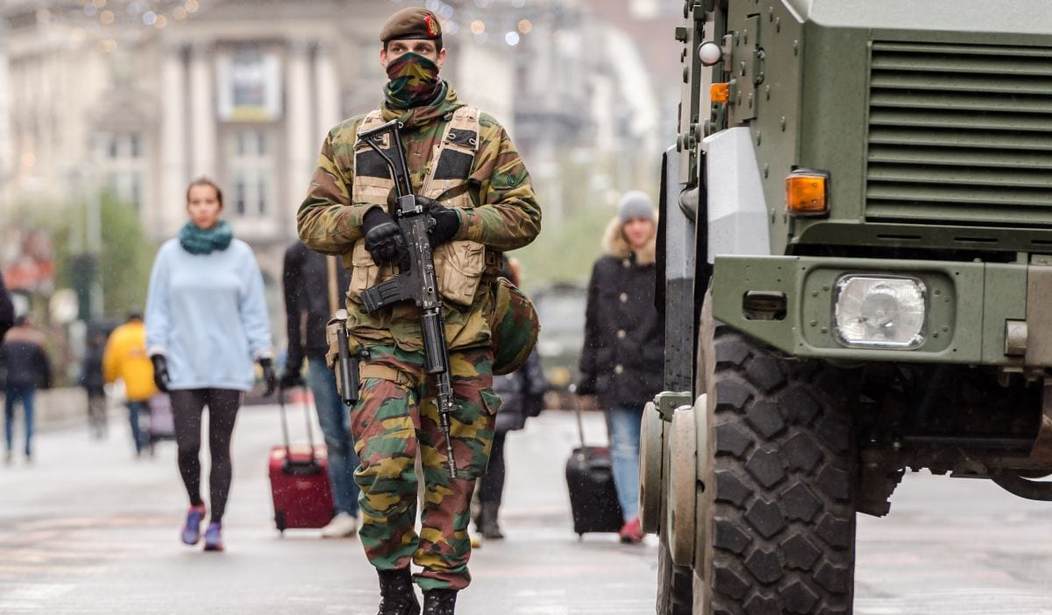There is extraordinary security activity in Brussels today as the city remains on lockdown due to what authorities are referring to as an “imminent” terror attack.
The New York Times is reporting that a former French intel official who is “close to the investigations” says that the Belgian police are looking for “8 to 10 armed men” with heavy weapons and explosives. Additionally, several Belgian media outlets are reporting the arrest of four individuals including one with a suicide vest.
The government will not identify the source of the intelligence or comment on how they know that the threat is imminent.
For a second day, the government put the country’s threat level at 4, the highest possible. The United States Embassy in Brussels continued to advise citizens to “remain at home” and avoid public gatherings. The authorities announced that schools and subways in Brussels would remain closed on Monday as well.
A railway station under the headquarters of the European Union’s executive remained sealed off on Sunday, and all traffic on the Brussels metro system was suspended. Soldiers with automatic weapons patrolled shopping malls. Several big stores stayed closed. A massive Sunday market near the Brussels-South railway station that usually draws as many as 50,000 shoppers was canceled.
Prime Minister Michel said Saturday that the threat level had been raised because of “information, relatively precise, of a risk of an attack similar to the one that unfolded in Paris.”
Bernard Clerfayt, the mayor of Schaerbeek, a commune of Brussels, was more loose-tongued. On Sunday, he told the Belgian television network RTBF that “there are two terrorists on the ground in the Brussels region.”
Brussels was under such high alert that Mr. Jambon said he requested that some football matches be canceled so the reserve federal police, who usually enforce the security during matches, could be deployed in the capital.
At the same time, the French authorities on Sunday published a new call for witnesses related to the attacks in Paris and last week’s raid in St.-Denis, appealing for more information about the suicide bomber who was the second of three attackers to detonate explosive vests outside the Stade de France.
The call for witnesses, published by the French national police on Twitter, included a picture but not a name, and asked anybody who had information on the person to contact the French authorities. The second suicide bomber detonated his vest near Gate H of the stadium, killing no one.
Putting some of the pieces together, an alarming picture is forming of a terror cell or cells made up of at least a dozen and probably more jihadists. Suicide vests, high explosives, and automatic weapons denote a sophisticated smuggling operation that may have included sneaking the terrorists into France and Belgium as well.
Such a network, operating with near military precision, is capable of killing hundreds — as we saw in Paris last week. The question is, have the efforts of the French and Belgian police, who arrested dozens, foiled other plots that may have been on the verge of being carried out?
The strategy to flood the city of Brussels with thousands of police and soldiers may be forcing the terrorists to keep their heads down. But what happens when the threat level is lowered? The government cannot lock down a modern, western city for more than a few days. Brussels is one of the major financial and commercial centers in Europe, so eventually, the alert level will have to be reduced. You would hope before that happens, the terrorists will have been caught, but even if they are, there appears to be plenty more where they came from.










Join the conversation as a VIP Member